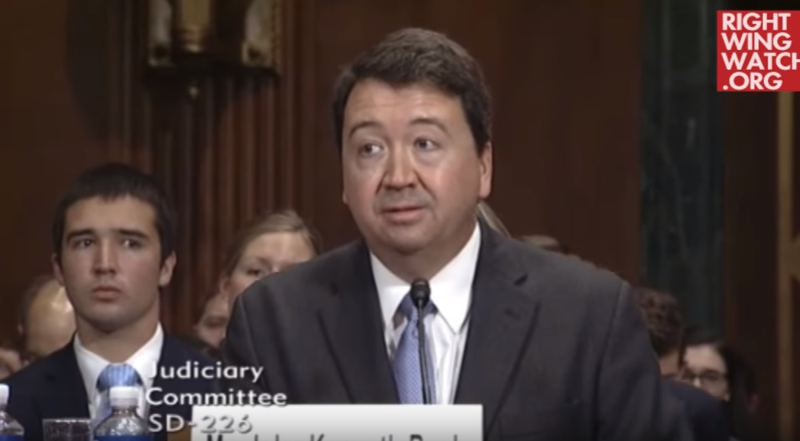“Confirmed Judges, Confirmed Fears” is a blog series documenting the harmful impact of President Trump’s judges on Americans’ rights and liberties.
Trump Sixth Circuit Judge John K. Bush recently cast the deciding vote that upheld the dismissal of a claim by a 76-year old Michigan woman who contends that she was fired in violation of the federal Age Discrimination in Employment Act (ADEA). The dissenting judge explained that there was clearly enough evidence that the plaintiff, Joanne Alberty, should have had a chance to present her case to a jury to decide.
In the case, Alberty v. Columbus Twp., Joanne Alberty had been working for Columbus Township in rural Michigan as a deputy clerk and then as assistant to the Township’s assessor for sixteen years. Despite an “impeccable” performance record, she was fired shortly after requesting a raise and was replaced by someone 44 years younger. Even the majority (Bush and Julia Smith Gibbons, who wrote the opinion) agreed this was enough to state a prima facie—sufficient on its face—case of age discrimination requiring the Township to explain the firing. But the majority upheld a grant of summary judgment against Alberty (meaning that the case doesn’t go to trial) because the Township claimed she was fired due to a budget shortfall and she did not submit a “direct admission” that the Township fired her because of her age.
Judge Eric Clay strongly dissented. He explained that a jury could reasonably reject the Township’s explanation, and in fact could find it “so unsatisfactory and lacking in credibility that it can only be explained as an excuse that the Township concocted to cover up its discriminatory action.” This was for a few reasons: a) the budgetary explanation was only offered after the lawsuit, b) the Township’s budget actually showed a surplus, and c) the budget not only gave Alberty’s successor an initial wage payment and training allowance that provided “negligible relief” from Alberty’s wages, but also paid her successor the exact same wages as Alberty, plus paying for more training, within a few months. A few months after that, the successor got another raise, making her “a far more expensive employee than Alberty had ever been.” Under Supreme Court case law in ADEA cases, the dissent explained, this conflict was for a jury to resolve and Alberty’s case should not have been thrown out.
Judge Clay was even more critical of Gibbons and Bush for claiming that their decision was justified because of the fact that there was not a direct admission that age was a factor in Alberty’s firing. Under Supreme Court precedent, he explained:
“a mere lack of direct evidence does not weaken an otherwise ample record of circumstantial evidence. Otherwise, an employer could never be held liable for discrimination—no matter how suspicious the circumstances or how demonstrably false the employer’s proffered explanation—as long as the employer did not admit to its discriminatory animus.”
Bush’s decision to join with Gibbons in refusing even to give Ms. Alberty a chance to take her case to a jury is extremely disturbing. It not only flies in the face of Supreme Court precedent, but it also reflects a hostility to civil rights that is a significant concern with respect to Trump’s nominees to our nation’s federal courts.

